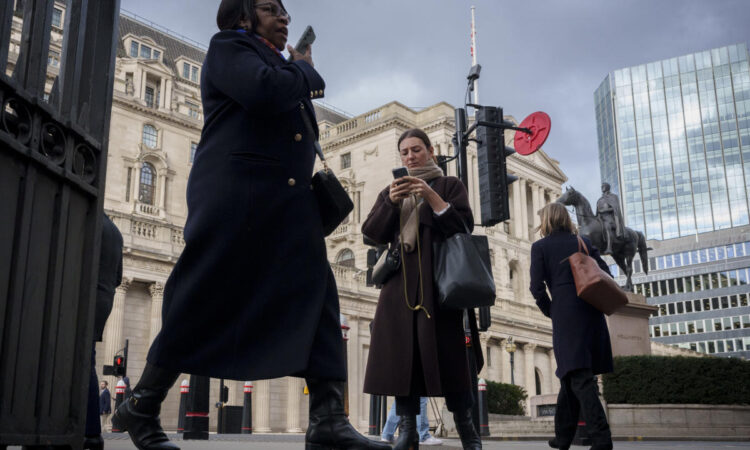
The FTSE 100 (^FTSE) and European stocks were mixed on Friday as UK house prices rose by 0.7% in January to reach a new record average high.
According to the latest figures from Halifax (LLOY.L), average property prices hit £299,138 during the month, and were up 3% compared to this time last year. This also followed a 0.2% dip in December.
It comes just a day after the Bank of England cut interest rates for the first time this year in a boost for the housing market.
Amanda Bryden, head of mortgages at Halifax (LLOY.L), said part of the reason for the new record was first-time buyers “eager to complete transactions” before the end of stamp duty relief in April, which was confirmed in Rachel Reeves’ October budget.
Bryden added: “Despite geopolitical uncertainties, and waning consumer confidence, other key indicators look fairly positive for the housing market.
Elsewhere, investors will be eyeing the latest US non-farm payrolls report, which will provide a temperature check on the US economy. US non-farm payrolls are expected to have added 169,000 jobs last month.
Max McKechnie, of JP Morgan, said: “Today’s data is not expected to show the kind of slowdown that would force the Fed’s hand.
“While payrolls are forecast to moderate after January’s bumper print, the anticipated 170 thousand jobs are still more than enough to keep the Fed on hold for now.”
The payrolls report for January is due at 1.30pm GMT, along with the unemployment rate and average earnings.
-
London’s benchmark index (^FTSE) was 0.3% down in early trade
-
Germany’s DAX (^GDAXI) rose 0.1% and the CAC (^FCHI) in Paris was flat on the day.
-
The pan-European STOXX 600 (^STOXX) was also treading water
-
Wall Street is set for a negative start as S&P 500 futures (ES=F), Dow futures (YM=F) and Nasdaq futures (NQ=F) were all in the red.
-
The pound was 0.2% higher against the US dollar (GBPUSD=X) at 1.2463
Follow along for live updates throughout the day:
LIVE COVERAGE IS OVER 23 updates
-
Blog close
Well it’s been a busy day today, so we will leave you here but thanks for following along.
Be sure to join us again tomorrow when we’ll be back for more of the latest market news and all that’s happening across the global economy.
Until then, have a good evening!
-
-
-
-
-
-
-
-
-
-
-
-
-
-
-
-
-
-
-
Download the Yahoo Finance app, available for Apple and Android.
